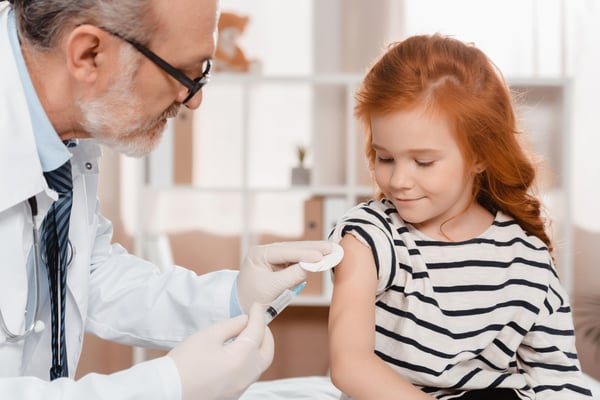CDC Advisers Recommend Pfizer Booster Shot for Kids Ages 5 to 11

THURSDAY, May 19, 2022 (HealthDay News) -- A panel of science advisers to the U.S. Centers for Disease Control and Prevent recommended on Thursday that a single booster dose of the Pfizer COVID-19 vaccine can be given to 5- to 11-year-olds.
The move is expected be confirmed by a sign-off from CDC director Dr. Rochelle Wallensky, and follows on authorization from U.S. Food and Drug Administration on Tuesday.
The third shot can be given at least five months after healthy kids complete the two-dose vaccine series, the CDC advisers said. Approval of the booster shots in this age group dovetails with a rise in infections in many areas of the country, and the CDC's Advisory Committee on Immunization Practices believes kids will gain an added layer of protection against SARS-CoV-2.
According to the New York Times, there was debate among members of the committee as to whether the recommendation should be that children ages 5-11 "should" receive the vaccine, or whether the wording should read that they "may" receive it, if their parents or health care provider believes the booster to be necessary.
In the end, the experts went with the stronger "should," given robust evidence of the booster's effectiveness regardless of age.
"While it has largely been the case that COVID-19 tends to be less severe in children than adults, the Omicron wave has seen more kids getting sick with the disease and being hospitalized, and children may also experience longer-term effects, even following initially mild disease," FDA commissioner Dr. Robert Califf noted on Tuesday. "The FDA is authorizing the use of a single booster dose of the Pfizer-BioNTech COVID-19 vaccine for children 5 through 11 years of age to provide continued protection against COVID-19."
Califf noted that vaccination is the most effective way to prevent COVID-19 and its consequences. And, he emphasized, it is safe.
FDA officials based their decision on an analysis of data from a group of children in an ongoing trial that led to last fall's authorization of the Pfizer vaccine primary series in 5- to 11-year-olds.
Antibody responses were evaluated in 67 study participants who received a booster dose seven to nine months after completing the two-dose vaccine regimen. A month after the booster, their antibody levels were higher than before, according to the FDA.
The safety of a single Pfizer booster dose was assessed in about 400 children, aged 5 to 11, who received it five to nine months after the two-dose series.
The most commonly reported side effects were pain, redness and swelling at the injection site, as well as fatigue, headache, muscle or joint pain, and chills and fever.
Dr. Diego Hijano, an infectious disease specialist at St. Jude Children's Research Hospital in Memphis, Tenn., welcomed the authorization.
"With an uptick in infections and the potential for a surge in the fall, a booster shot for children ages 5 to 11 is an important layer of protection," Hijano said. "Vaccines save lives. Parents of eligible children, five months out from their last COVID vaccine shot, should make appointments for their child's booster so they have full protection for the summer from severe illness and hospitalization."
Meanwhile, Califf urged parents whose eligible children have not yet been vaccinated to get the shots.
"Getting them vaccinated can help protect them from the potentially severe consequences that can occur, such as hospitalization and death," he said in an FDA news release.
The CDC noted that more than 350 kids between the ages of 5 and 11 have died as a result of COVID-19, according to Associated Press.
Thursday's action follows the FDA and CDC authorization in January of a single booster dose of the Pfizer vaccine for 12- to 15-year-olds.
More information
There's more on COVID-19 vaccines at the American Academy of Pediatrics.
SOURCES: U.S. Food and Drug Administration, news release, May 17, 2022; Associated Press
Related Posts
Mindfulness Program Equals Antidepressants in Easing Anxiety Disorders
THURSDAY, Nov. 10, 2022 (HealthDay News) -- A new study harnesses the power of...
New Yorkers Warned of Possible Community Spread of Polio
FRIDAY, Aug. 5, 2022 (HealthDay News) -- New Yorkers who are not vaccinated for...
One in Eight Older Adults Addicted to Highly Processed Food
TUESDAY, Feb. 7, 2023 (HealthDay News) -- Nearly half of older adults report at...
Social Isolation May Be Independent Risk Factor for Dementia
FRIDAY, June 10, 2022 (HealthDay News) -- Social isolation seems to be an...
